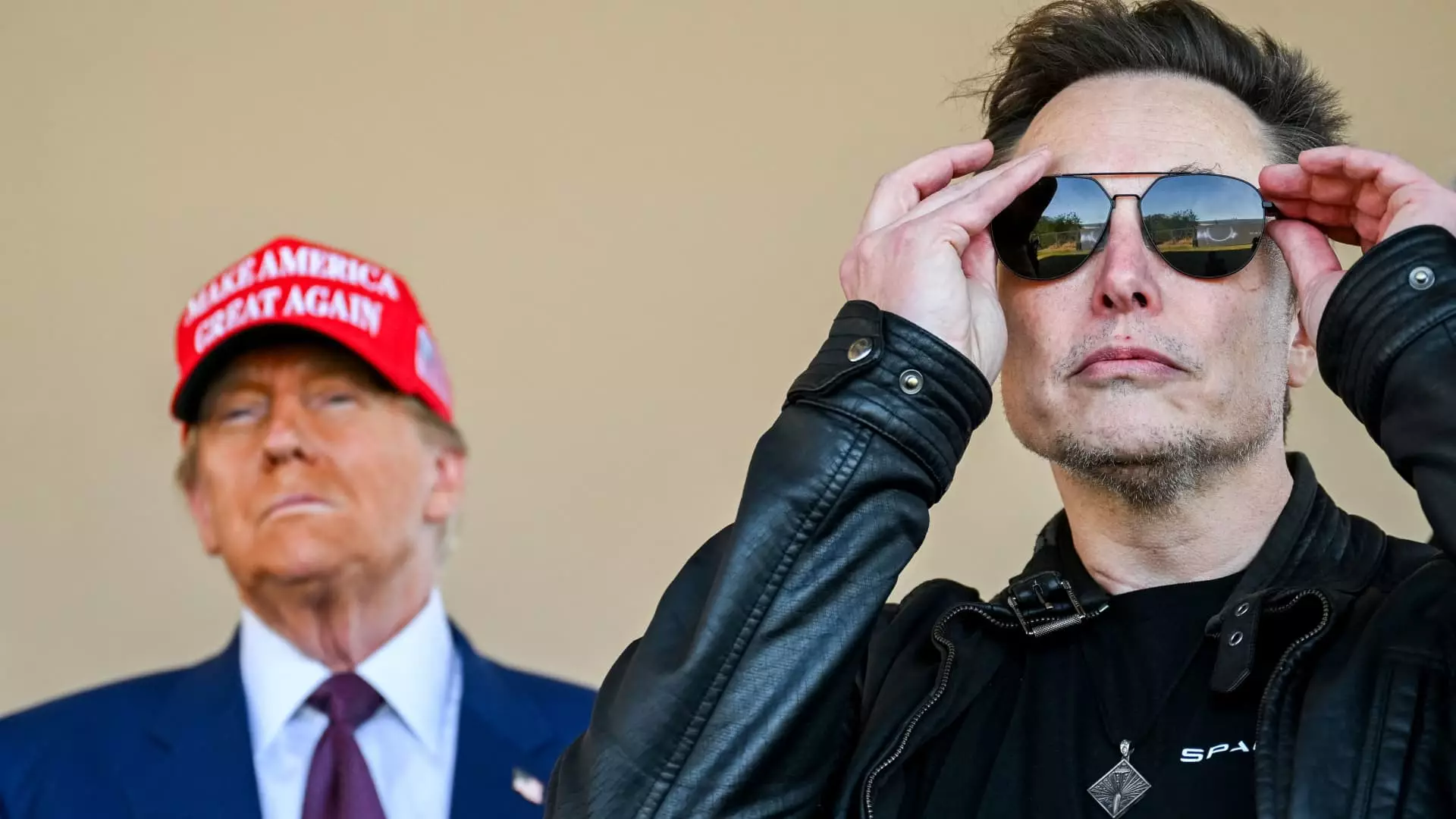In an intriguing move that signals a potential shift in federal governance, entrepreneurs Elon Musk and Vivek Ramaswamy are set to meet with Republican congressional leaders on December 5 to discuss radical government reform strategies. House Speaker Mike Johnson of Louisiana has confirmed this pivotal meeting, highlighting the growing influence of business leaders on legislative processes. The duo’s commitment to revamping government operations emphasizes a pronounced call for regulatory cuts and enhanced administrative efficiency, aiming to realign how taxpayer dollars are managed and allocated.
The formation of the so-called Department of Government Efficiency (DOGE) marks a significant collaboration between Ramaswamy and Musk under the auspices of President-elect Donald Trump. This advisory commission is designed not just as a think tank but as a direct consultative body to the White House’s Office of Management and Budget (OMB). While the specificities of DOGE’s mandate may still be unfolding, it is poised to push for aggressive cuts to the federal workforce and a substantial reduction of various governmental agencies, echoing a broader agenda to reshape the American bureaucratic landscape.
A recent opinion piece authored by Musk and Ramaswamy in the Wall Street Journal delineated their ambitious reform goals, which prominently feature eliminating unauthorized federal expenditures and slashing funding for entities like the Corporation for Public Broadcasting and Planned Parenthood. The provocative nature of these proposals reflects a clear ideological stance towards minimizing government intervention in sectors traditionally perceived as heavily subsidized by federal funds. However, the actual execution of these proposals will hinge on Congressional approval, a realization that could complicate their ambitious plans.
Despite the fervor surrounding their reform initiatives, the feasibility of enacting such sweeping changes rests precariously within a tightly controlled Republican majority. With the ongoing redistribution of power in the House, Johnson will manage one of the slimmest majorities in decades, which could stall even the most decisive reform proposals. The geographically diverse nature of the federal workforce also means that any proposals that negatively impact federal employees are likely to face tangible resistance from representatives who prioritize their constituents’ interests.
This partnership between prominent business figures and political leaders serves as a revealing case study on the intertwining of private sector efficacy and public governance. Musk, as the CEO of influential companies such as SpaceX and Tesla, brings a unique entrepreneurial perspective to governmental operations, while Ramaswamy’s biotech background adds another layer of insight into the intersection of corporate and public health policy. Their involvement symbolizes a larger trend where successful entrepreneurs seek to reshape policy agendas, often departing from traditional political actors.
As the December meeting approaches, it will be critical to observe not only the discussion outcomes but also the responses from both Congress and the wider public. The ambition displayed by Musk and Ramaswamy to fundamentally alter government structures could either ignite a necessary transformation or highlight the challenges inherent in implementing such extensive changes within a complicated legislative environment. The future of their initiatives will depend on navigating a delicate balance between innovative ideas and the political realities that govern their enactment.


Leave a Reply